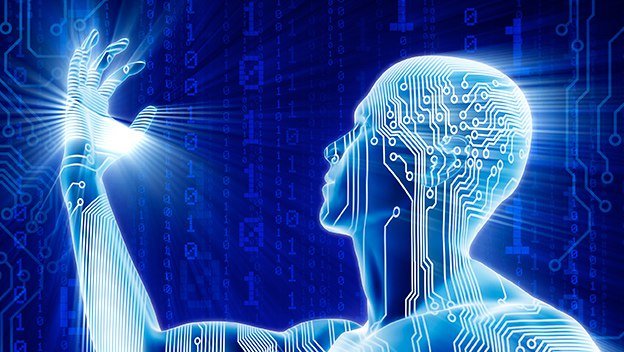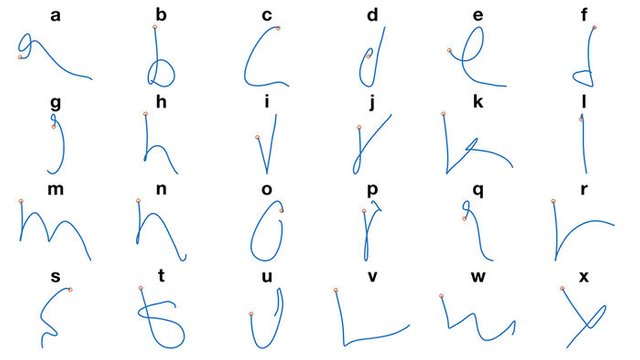AI that could cause people with paralysis to rewrite by hand

Source: Google
Greetings comrades, on this day I bring you something interesting and I was glad that the AI is addressing this type of field. Well, as you read in the title, people with different types of paralysis might be able to write by hand again.
Normally, this group of people have many complications when it comes to communicating, and although there were some advances, these were not good enough, to say the least, since they were not entirely fast and even easier to make available to everyone.
With this AI, this will surely be the solution or at least the basis for solving this problem in time.
Now I will explain to you how this AI works, in order to be able to learn it, they employed people with the mentioned condition, whom they put to "write" mentally. And then the AI took charge of processing this information and thus reading the "written" phrases with an accuracy of 95% (given that in letters like g and q, I can't decipher them at all).

Source: Sample of what is written in the practices. Sciencemag.org
Yes, it may sound crazy but it was so, as the process of writing corresponds to a fine motor skill, which is a set of commands, sequences and movements that result in the writing itself.
In comparison to the old way that consisted of implanting electrodes in the brain of the person and with this people could move a cursor with which they were selecting letters from a screen.
We must take into account something, the average writing speed of a normal person is 120 letters per minute, and to be used this AI resulted in about 66 letters per minute, taking into account that this is a little more than half of a normal person is more than well, and taking into account that the tools developed earlier, I throw a number of 39 letters per minute, is a breakthrough as it almost doubles that amount and not only that but they are slowly approaching the standard figures.
The researchers comment that apart from using the information collected to perfect AI, it would also serve to understand how the brain works when fine motor movements are required.
Personally, I know that with time and many more hours of practice and development, this AI could equal the numbers of a "normal" person. Thus removing this barrier between those with such a condition and giving them back some freedom to express themselves.
Apart from this, who knows if the next step is to improve with AI other areas of communication impairment, such as some cases of speech for example, would be great without a doubt.
As always thank you for reading my post, I'm not leaving without wishing you a happy day, evening or night.
Links of interest:

Source: My Giphy Gallery
Hi @jjqf
You know that you are right in all your approach, AI is not something that is being invented at this time in fact this publication made me remember someone who I admire a lot.
Stephen Hawking
Greetings friend this post is great
I read your post on the use of technology to improve the quality of life and then I find a post by @doifeellucky at https://steemit.com/ai/@doifeellucky/ai-ban-faw-fully-autonomous-weapons -and-law-lethal-autonomous-weapons-before-it-s-too-late and a part of me loses some of the joy you had given me.
I always like to think that we can do better things as a species than look for ways to kill each other, but then reality comes and it wakes me up.
I comment on this because combining the readings I ended up searching if I had any of the old backups with some information about the Halo sub-project, which was part of the old TALOS Project. Son Halo was intended to place a belt-like attachment that would allow linking orders "thought" by a soldier to activate or interact with his team, which was expected to have some degree of intelligence to respond and adjust to the orders. Thus controlling or complementing the control of weapons with a combination of AI + Human brain would be an advantage to kill more people.
Someone will tell me that I am very pessimistic and that the development of control modules and sensitive prostheses is a collateral benefit to the development of this project, but it is not taken away from my head that they are initially developed as weapons.
Hello @pedrobrito2004,
thanks for pointing out this article to me!
Cheers!
Lucky
Dear @jjqf
Sorry for such a late comment buddy. I only had a chance to read your publication just now.
It's great to see that AI is being also used for purposes that can actually help people. Very refreshing.
However shouldn't we call this solution 'machine learning' instead of calling it AI? Just wondering what's your opinion.
ps. calling readers "comrades" sounds very ... russian :) Almost like a Soviet Union greeting haha
Good read. Upvote on the way :)
Yours, Piotr
Vaya que escritura, apoyado #toptres del día. @jjqf
Excelente información, siempre al día con IA, gracias por compartirla y permitirnos aprender en este campo, @jjqf. Apoyado en #toptres.
Dear @jjqf,
very interesting!
A nice example of putting AI to good use! Btw I believe that the majority of use cases are positive but tbh I'm concerned because the few bad use cases, I got confronted with so far (InfoSec, data analytics compromising privacy, weapons and so on) are so devastating.
Nonetheless this here is a beautiful example!
Thanks for sharing! Upvoted and Resteemed!
Cheers!
Lucky
Cheers!
Lucky
Hi, @jjqf
It's amazing they're taking advantage of IA technology in this area. Not long ago I saw a movie called:
UPGRADE - https://www.imdb.com/title/tt6499752/
There was a paralyzed man who had a chip implanted in his spine and with the use of an AI he could move: walk, use his hands, etc. I thought this was just science fiction but I see there is a possibility.
Thanks for sharing :D
Regards appreciated friend @jjqf.
I cannot deny that this topic you addressed immediately caught my attention. All the actions that are developed with the intention of improving the quality of life of the people, are involved with a great feeling of nobility and humanity.
With your explanation it was not clear to me how the process would be, or rather how the device that people with disabilities would use to write would be. I suppose they should use an optical pencil so that an automated system with AI support interprets the "scribbles" drawn and then represents them with the corresponding letter on the screen of a computer or device.
Great topic, thanks for sharing.
Your friend, Juan.
Amazing concept. I am a fan of augmented reality and maybe something along these lines can be easily incorporated.